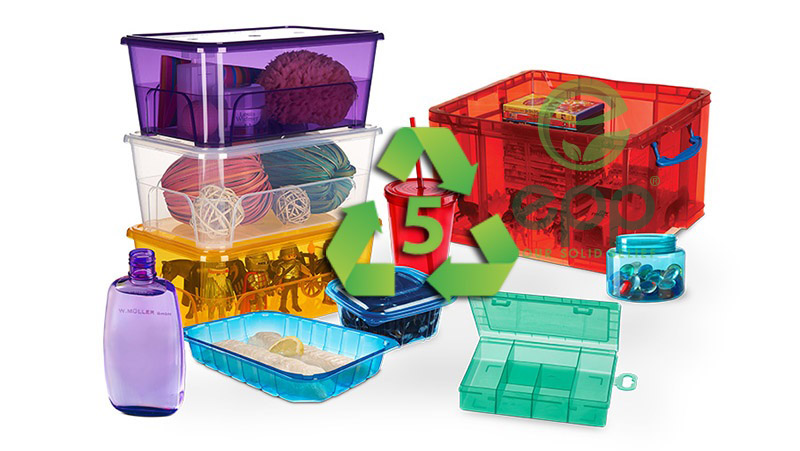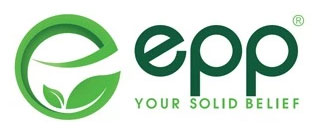When looking at household products, containers, and household appliances, ... from the kitchen to the living room and outdoors, a familiar material that customers often find is PP plastic. So does anyone wonder: What is PP (Polypropylene) plastic, its chemical formula? Is it toxic and what are its advantages? Why is it so widely used and popular?
Let's explore the composition and properties of PP plastic with EPP.VN to find out why PP (Polypropylene) is so popular with users & manufacturers.
1. What is Polypropylene Plastic? Chemical composition and properties of polypropylene resin
Plastic is a general term for a wide range of synthetic or semi-synthetic materials using polymers as the main component.
Their plasticity allows plastics to be molded or extruded into different shapes. This flexibility combined with a number of other properties such as lightness, durability, flexibility, and low production cost makes it the most popular material in the world today.
What is PP (Polypropylene) plastic?
PP (Polypropylene) resin is a hard, tough, and crystallized polymer thermoplastic produced from the monomer propene (or propylene). PP (Polypropylene) plastic with the chemical formula (C3H6)n - is the cheapest plastic available today.

Plastic is a general term for a wide range of synthetic or semi-synthetic materials using polymers
Outwardly, PP plastic granules are transparent white, colorless, odorless, tasteless, and non-toxic. When producing these plastic resins, manufacturers often mixed them with coloring particles to produce eye-catching products with more colors.
Due to easy synthesis from cheap and safe materials, PP plastic is widely used in all industries, countries, and product categories.
Some of the most important properties of PP plastic are:
Chemical resistance: Diluted bases and acids don't react easily with polypropylene, which makes it a good choice for containers with liquids such as detergents, first aid products, and more.
Elasticity and toughness: PP plastic has elasticity over a certain deflection range (like all other materials), but it will also undergo plastic deformation early in the deformation process, therefore, it is often considered a "hard" material. Toughness is a technical term defined as the ability of a material to deform (plastic, inelastic) without breaking.
Resistant to deformation: Polypropylene retains its shape after many twists, turns, and/or crimps. This property is especially valuable for living hinges.
Insulation: polypropylene has a very high resistance and is very useful for electronic components.
Transparency & light penetration: Although polypropylene can be made transparent, it is often manufactured to have a natural opaque color. Polypropylene can be used for applications where some light transfer is important or where there is aesthetic value. If high transmittance is desired, then resins such as Acrylic or Polycarbonate are a better choice.
Based on the properties of PP plastic, it is widely applied in many different industries and products in our life.
Applications Of PP (Polypropylene) Plastic In our Life
In summary, PP plastic has the following properties: chemical resistance (safe for health), high elasticity and toughness (easy to laminate), anti-deformation (good bearing capacity), electrical insulation (used for electronics, technology), transparent - light penetration (used for food boxes..).

All kinds of multi-purpose plastic containers
From these properties, PP plastic is widely used in human life with many familiar applications and products such as:
- The most common and most visible applications are water bottles which are sold in grocery stores and supermarkets such as Lavie, Coca, ...
- All kinds of multi-purpose plastic containers, food containers, smart rice boxes, transparent disposable food boxes used in roadside eateries...
- Baby products such as baby toys, milk bottles, plastic cars, strollers… are also made from PP plastic.
- Application in the production of home appliances & furniture such as kitchen and living room utensils, and then storage baskets, bathroom shelves, …

Materials for bulk bags for dangerous goods, Moisture-Proof Big Bag...
- Films for wrapping and storing food and utensils are also made from PP plastic which is both safe and cheap...
- Especially, PP (Polypropylene) plastic resins were selected by EPP Vietnam as input material for the production of high-quality FIBC bags and coated materials for bulk bags for dangerous goods, Moisture-Proof Big Bag...
EPP Vietnam specializes in manufacturing and supplying FIBC bags, also known by many names such as Jumbo bags, big bags, bulk bags, container bags. Please take a look around our website epp.vn to choose the suitable bulk bags for your application.
🌐Website:https://epp.vn// https://eppvietnam.trustpass.alibaba.com/
📲Ms. Jennifer: +84 962 055 998 - sales02@epp.vn
📲Ms. Charlie: +84 986 002 888 - sales@epp.vn



